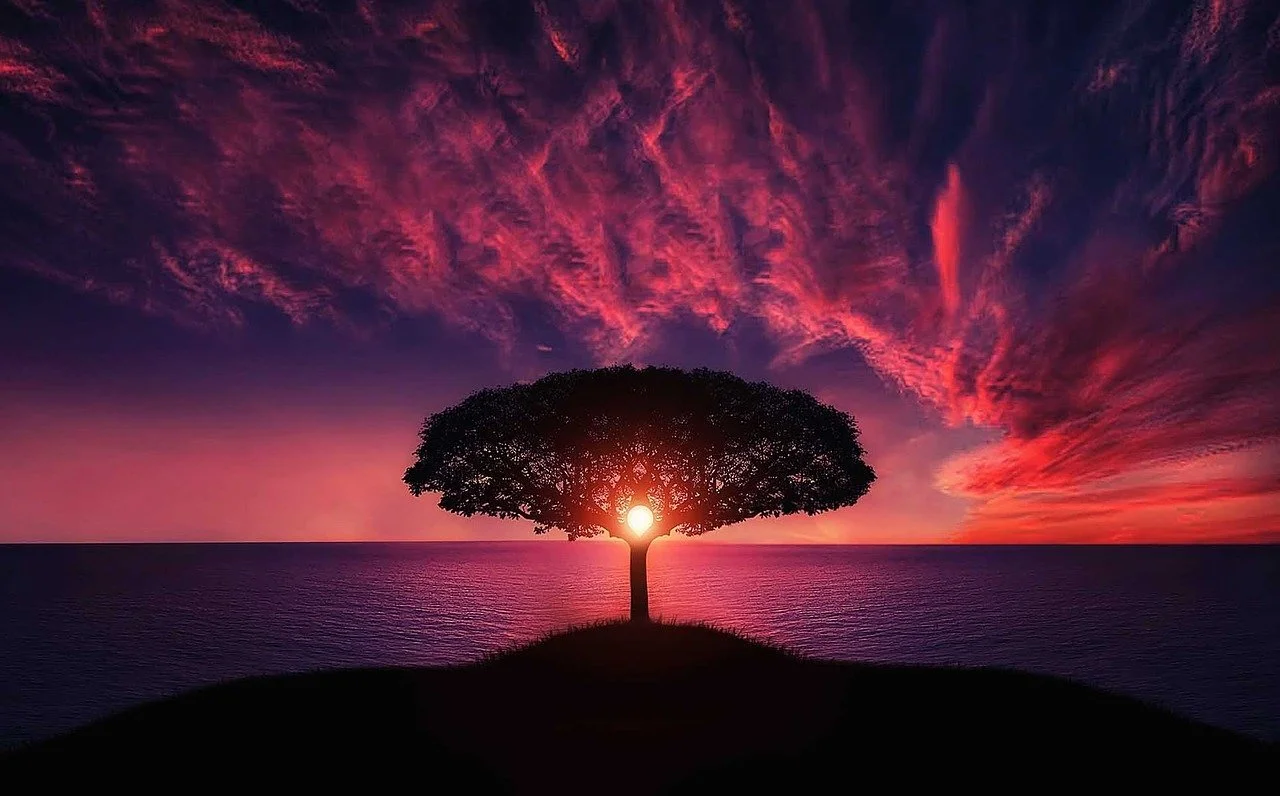Is Donald Trump an Atavism of the Past?
In his book, Human, All Too Human: A Book for Free Spirits, and again in his book The Gay Science, Friedrich Nietzsche claimed that what he calls “atavisms” of the past occasionally appear in the course of human history, those who do not fit the mold of today’s values. (In biology, atavisms are genetic traits that reappear after generally having been lost, such as the reappearance of a vestigial tail.) These cultural atavisms may take the form of praiseworthy individuals who are either particularly transcendent and inspiring, those who break the mold and push humanity and our intellectual, cultural, political, social, and artistic heritage forward because they are so groundbreaking in their uniqueness and creativity, or they may be throwbacks to an earlier stage of human cultural development—people who are particularly power-driven, individualistic, cruel, ambitious, etc.
These cultural atavisms, these throwback individuals, for Nietzsche, may have positive connotations, harkening back to the days when humans thought more in terms of epics and glory and their inner strength and achievements (think Achilles in The Iliad) than about the common good or about morality as such. Or they may have negative connotations, such as the way in which particularly cruel and power-hungry persons seem to spring forth seemingly out of nowhere in our otherwise relatively genteel modern cultural climate, even despite the political unrest and divisions that are a natural part of any living society in flux.
While much can be said about Nietzsche’s positive use of the term, such as the way in which being willing to break the mold intellectually or artistically allows for genuine authenticity that transcends the cultural expectations and milieu of the times, I was recently struck by Nietzsche’s claim in Human, All Too Human that individuals who strike us today as being particularly inhuman can be thought of as surviving specimens of our own human history and evolution, the necessary but unmentionable aspects of humanity and human history that were necessary for us ever to achieve the more “enlightened” (in irony quotes) cultural environment that we now enjoy. Consider what Nietzsche has to say about these “inhuman” individuals:
“Men who are now inhuman must serve us as surviving specimens of earlier civilizations. The mountain height of humanity here reveals its lower formations, which might otherwise remain hidden from view. There are surviving specimens of humanity whose brains through the vicissitudes of heredity, have escaped proper development. They show us what we all were and thus appal us; but they are as little responsible on this account as is a piece of granite for being granite. In our own brains their must be courses and windings corresponding to such characters, just as in the forms of some human organs there survive traces of fishhood. But these courses and windings are no longer the bed in which flows the stream of our feeling.” (Nietzsche, Human, All Too Human: A Book for Free Spirits, No. 43)
Nietzsche makes some interesting claims in this short passage. He claims that earlier stages of cultural development were necessary and natural, such that we cannot fault either those earlier humans or their atavisms today for being what they are: throwbacks to earlier stages of human development. Nietzsche also claims that this same potential exists in all of our brains, and perhaps thus remains deeply buried in our cultural consciousness today. We all have the potential for the same inhumanity and cruelty, but we bury it and we no longer swim in those streams of consciousness, at least not publicly or very often.
If Nietzsche is correct that particular cruel or inhuman individuals are atavisms of our own cultural past and development, then we learn something about ourselves from the behavior, actions, mindset, and ways of being resurrected by those particularly inhuman individuals. They hold a moral, cultural, and intellectual mirror to ourselves, allowing us to peel back the layers upon layers of subsequent development to expose the necessary foundation and core, the “lower formations” of which Nietzsche speaks in the passage above.
We would like to think that humans have always been so “evolved” (again, in irony quotes) as we are, and so we mistakenly project our own values onto humans and civilizations of previous eras. And we like to pretend that we have advanced so far to have escaped those earlier ways of being altogether. Yet uncomfortable reminders of our shared human history, culture, and moral/intellectual forms arise once again, seemingly out of nowhere, to remind us of what we once were, and perhaps still are deep down inside us in the recesses of our cultural memory and consciousness. After all, we have ambition, but we couch it in nobility of purpose. We have cruelty, but we couch it in terms of “just wars” and punishments of all sort. We seek power; we just seek it in different ways, politically and socially instead of monarchically or hierarchically. But the aims of power and clout are themselves atavisms of the past in the same way that the inhuman humans today are atavisms of the past.
To address the question raised in the title: Is Donald Trump an atavism of the past? His lack of compassion, his quest for power, his dismissal of arguments and facts contrary to his own views, his endless need for self-promotion and self-aggrandizing, his lack of literacy or historical sense, his eye toward wealth over justice and fairness, and many other qualities displayed by Donald Trump, perhaps always but now as President of the United States, are reversions to earlier forms of humanity that we fancy ourselves to have move beyond. Donald Trump revolts us (or, rather, he should), but perhaps only because, deep down, we revolt ourselves, individually and culturally: we look inward and find the same cruelty within us. And if we don’t find it, we are lying to ourselves. Sure, it may manifest itself in different ways, such as cruelty to one’s undesirable family members, friends, or neighbors, but it’s there within us just the same. We look at our own history and forget the necessary stages of cultural development that were necessary for us as a species and culture to enjoy these modern times, but we ignore the ways in which those cultural remnants survive within ourselves today, again manifesting themselves in myriad ways but born of the same individual and cultural drives, desires, and unmentionable parts of ourselves.
Of course, Nietzsche claims that this modern era—with its Christian morality, its obsession with objectivity and universality, and the cultural hegemony that springs from it—is just another stage of cultural development, indeed as a development of humans as a species. Just as there were rare individuals who were able to transcend their own past and present cultures and limitations to achieve greatness in their own unique ways, they ushering in each new era of humanity and culture, there have likewise always been throwbacks to earlier ages and stages, no matter how far humanity has seemingly evolved beyond those earlier modes of being.
Likewise, there will appear rare individuals today who refuse to be held back by the culture, social, intellectual, and artistic limitations of our era today, those who will usher in the next era of history, the next cultural movements, and the next stages of our own development, and the ones to follow after those. And in those future stages, there will continue to be throwbacks and atavisms of the past, both of the ancient past (of which perhaps Donald Trump is the prime example today) and in the form of throwback to today’s age—those who cling to Christian morality, naive scientism, philosophical objectivity, narratives of progress or emancipation, and the supposed ideals that define us as contemporary, modern humans and Americans, no matter how much cruelty we Americans and our elected politicians may display in the crevaces of our minds or, sadly, even out in the streets with all of the unrest and violence we are seeing in the streets almost daily now.
We glorify and romanticize (or criticize—it’s much the same thing!) the cruelty and nobility of the ancients with their warrior cultures, even those in our direct cultural and historical lineage not so many generations ago, while sitting on the fence about the atavisms of the past surrounding us today, in ourselves and in others. What hypocrites we humans are. We can’t have it both ways. Either we have left (or will choose to leave) our “inhuman” human past behind us once and for all, or we must come to terms with the fact that we will never be rid of those elements of humanity we now find unsavory in public and hide from ourselves and each other in private. Indeed those very elements, culturally and biologically, are what allowed us to crawl out of the muck and distinguish ourselves from other species on the planet in the first place.
On both end of the political spectrum, for us as Americans and globally for humans everywhere, Donald Trump is a mirror of and for ourselves, and we don’t like what we see—not the publicly acceptable and genteel, evolved parts of ourselves, but the atavisms of the past and the throwbacks to earlier modes of humanity lingering on in all of us, the pats of ourselves psychologists like to tell us that we repress and subdue for the sake of reinforcing our own false natives about ourselves and who we are, individually, as humans, and as civilized Americans.
It seems clear that humans really can transcend they earlier ways offing, as least most of the time and for most of us. But we shouldn’t do so at the expense of the awareness of who we used to be as a people, of how we got here, of the stages of evolution we had to go through as a species and culturally, or of the continued presence of that more violent, inhuman, cruel, power-hungry, ambition-driven, power-seeking drive still lurking within all of us. Given all of that cultural and moral repression, the emergence of a particularly cruel and inhuman human and so-called leader like Donald Trump shouldn’t surprise us very much.
Hopefully Nietzsche is correct that this particular throwback, in the form of Donald Trump, is occurring because we are on the cusp of yet another leap of human and cultural evolution, that we are about to transcend the not-fully-evolved culture that made Donald Trump and his rise to power possible in the first place. It will take another strong person to get us there, another kind of atavism, but an atavism of a different sort: one who has the strength to push humanity forward yet again, out of the modern era completely with its power-seeking, moralization, polarization, corporatization all couched in friendlier and more enlightened terms, and into a genuinely transcendent phase of future human cultural evolution. In the next era, there will still be throwbacks to the past in the forms of “inhuman” humans, the next Donald Trump, but hopefully we won’t tolerate them nearly as much as we supposedly modern and evolved humans—we “enlightened” and “moral” ones—do today.
For Further Reading:
Human, All Too Human: A Book for Free Spirts by Friedrich Nietzsche
The Gay Science by Friedrich Nietzsche







